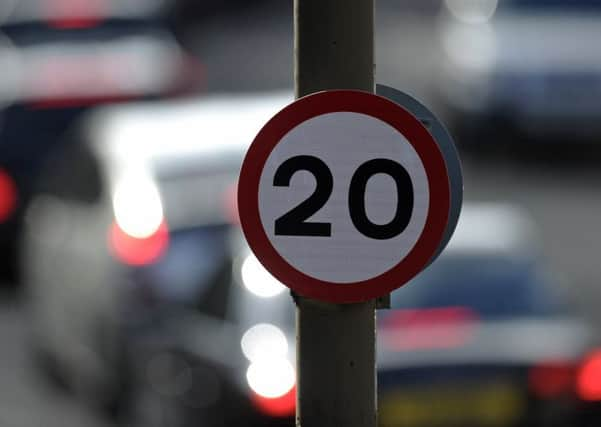Iain Docherty: local level action best way to beat traffic problems


The Scottish Government is undertaking a hugely ambitious programme of investment across the network yet has had to battle a succession of negative stories generated by the inevitable disruption caused by major upgrade works to key roads and railways. Against this background of increased political attention, what should we expect of the parties in their manifestos for the forthcoming local elections?
In recent work with colleagues from the Institute of Transport Studies at the University of Leeds, we looked at the efforts of local authorities across the UK to make transport more sustainable. We found that local councils – particularly in cities – often had more success than central government in actually introducing policies that aim to swing the balance more towards walking, cycling and public transport. This is because the problems caused by our over-reliance on the car, particularly congestion and air pollution, are at their most acute in urban areas, and so the imperative to intervene is stronger. Given this, we should perhaps expect local politicians to take the lead in tackling these problems.
Advertisement
Hide AdAdvertisement
Hide AdThis is not to say that local transport policy is easy. Progress on making transport more sustainable is very slow in Scotland and the UK more generally compared with other European countries. Although progress such as the recent extension of 20mph zones in Edinburgh and Glasgow city centres is to be welcomed, there has been significant negative reaction from certain quarters. In some areas of Scotland there are now some really quite vitriolic local campaigns against measures such as increased pedestrian and cycling priority, which have been proven to help promote active travel and stimulate local economies. The recent well organised and high profile campaign against the extension of the Bearsway cycle route in East Dunbartonshire is a prime example.
So in the manifestos for May’s elections, I will be looking to see the extent to which each of the parties is prepared to tackle transport problems at a local level. Congestion is on the rise again after several years of stability in the level of traffic. The answer to this is not to capitulate to the motoring lobby by enacting regressive policies such as the sweeping away of bus lanes, as in Liverpool, but rather improving public transport and opportunities for walking and cycling so that there are fewer cars on the road in the first place.
Growing public awareness about the true impact on health and wellbeing (especially of children) of local air pollution caused by vehicles is an unmissable opportunity to make the case for a more sustainable approach to transport in a way that previous campaigns focused on climate change and congestion have not.
Campaigners often point to the stark disparity between Scottish towns and cities and those places in continental Europe that are ahead of us in tackling the transport problem. But it is crucial to recognise that places like Amsterdam and Copenhagen did not become the vibrant places with high rates of walking and cycling they now are overnight. Forty years or so ago, they looked exactly like Scottish cities: choked with too many vehicles, too much pollution and substantial unrealised potential. Transforming them took time, effort and political leadership to make the difficult choices required to make things better.
Hopefully our new council administrations elected in May will have the courage to close the gap by taking the progressive transport decisions required to make Scottish towns and cities more sustainable places to live, work and enjoy.
• Iain Docherty is professor of public policy and governance at the Adam Smith Business School, University of Glasgow